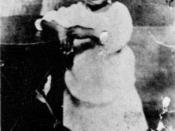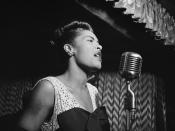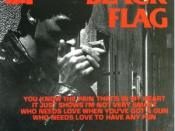What is censorship? Encarta defines censorship as "something that is meant to prevent free expression." There are many reasons why people censor entertainment such as literature and music. . There are many different ways to censor things. In the 1770ÃÂs, French author Beaumarchais had two of his plays, The Barber of Seville and The Marriage of Figaro, banned by King Louis XVI. Back then, these plays were considered blasphemous. To fully understand how our system of censorship works today, we have to look into history to see how censorship got started and how it affected music.
Johann Gutenberg invented the movable type printing press and published his first bible sometime around 1450. The Church's control over the written word was destroyed. Responding to this new technology of freedom, the Church created a number of methods to try to regain control. The most famous of these was the Index of prohibited books. The Index listed hundreds of banned authors and books. On October 31, 1517, the Day of all Saints, Martin Luther posted his 95 statements, to the doors of a church. This was in a time when nobody ever questioned the ChurchÃÂs authority without high penalty. Soon after that, others began to follow his example. Eventually, the Church lost it's power over people. The local and national government took it's place as the authority leader. As the governments grew, it eventually started controlling the public in ways the church did. This included music and books. Eventually, in the 20th century, the majority of censors were small groups around the country.
During wartime, when censorship is sometimes at its worst, both books and popular music are effected. In 1968, the Doors' single "Unknown Soldier" was banned from airplay at many radio stations because of its anti-war theme. With the...


